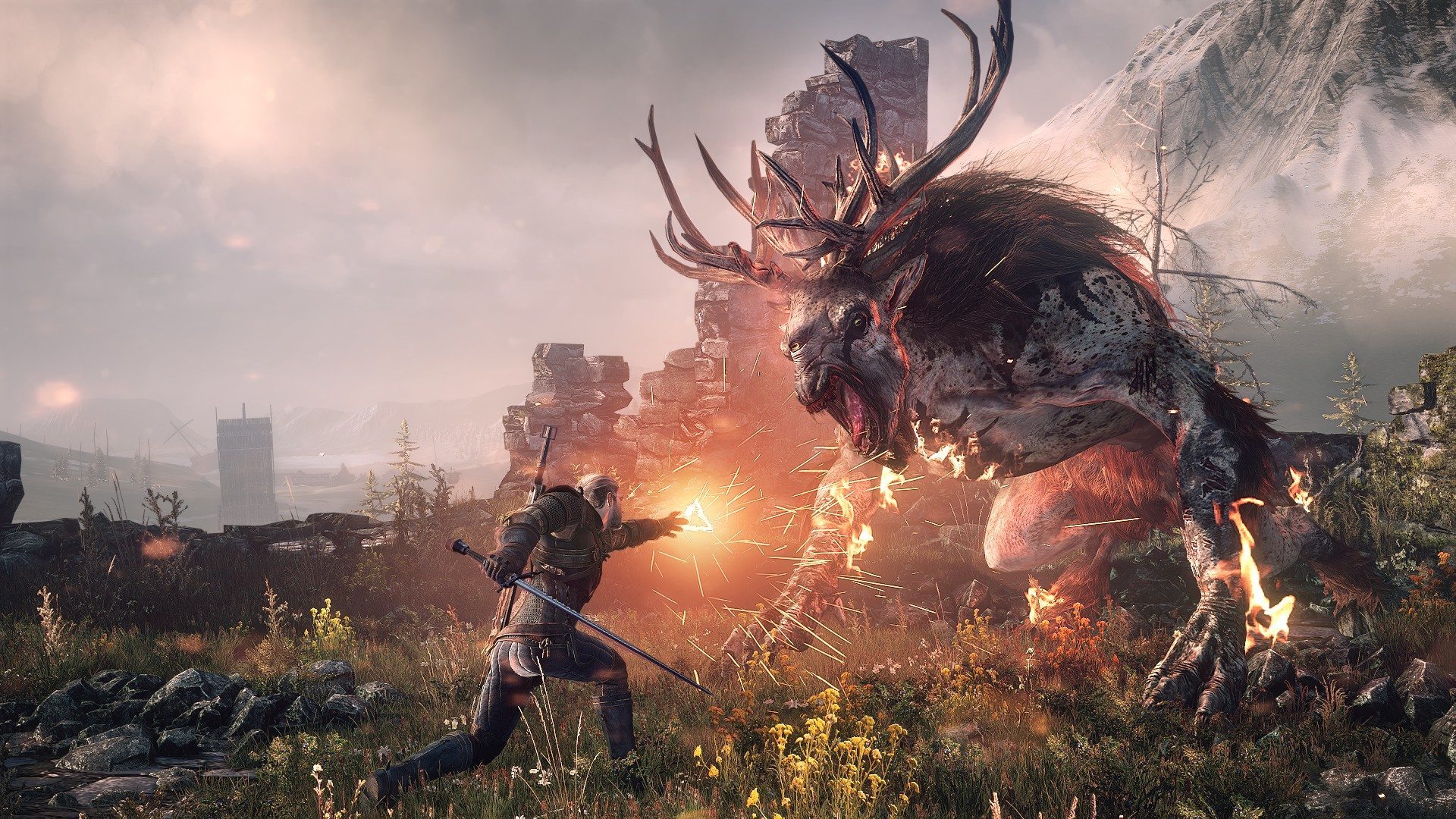The Witcher 4 devs reveal why they chose Unreal Engine 5
New saga, new engine

CD Projekt Red delighted many last month by revealing that The Witcher 4 is in development (even if it’s not technically called that). Kicking off a new saga, the next Witcher game will focus on a different Witcher school, but what surprised many was the choice of tech powering it.
The Witcher 4 isn’t using the studio’s proprietary REDengine that powered Cyberpunk 2077 and The Witcher 3. Instead, CD Project Red confirmed it will be using Unreal Engine 5, and now we know why.
Speaking during yesterday’s State of Unreal event, CD Projekt Red's chief technology officer Paweł Zawodny said, "Our collaboration with Epic has just started. It was the shift towards open-world support that brought Unreal Engine 5 to our attention. This opens a new chapter for us where we really want to see how our experience in building open-world games gets combined with all the engineering power of Epic."
Joining Zawodny for this talk was Jasom Slama, game director at CD Projekt Red. Detailing how this collaboration begun, he confirmed "there was one demo that happened last year, that was the medieval environment demo, where at one point there's a notice board that looks strangely familiar to things we've done in the past – that even has a sign that says 'monster slayer wanted'." It’s an obvious nod to The Witcher, which often sees Geralt of Rivia picking up work from local notice boards.
Evidently, this caught the team’s attention. Elaborating further, Slama continues on, stating "And I'm like, 'Hmm, are they trying to tell us, come over to Unreal Engine, look how great your games can look on there? Was that whole demo made with that nefarious purpose?' I don't know, but it definitely caught my eye."
Moving onto the team’s philosophy for open-world games, Slama said it's important to keep in mind "the possibilities of the things that can go wrong," explaining how the scenarios you’ve got to consider are "exponentially higher than linear games." Because players can go in any direction, he confirmed development requires "a really stable environment" due to the sheer amount of variables. As such, the team needs to make changes without breaking many other things, and using Unreal Engine 5 meant they already had the tools.
Soak in more information on why @CDPROJEKTRED has chosen to use #UE5 to build new open-world games, including a new saga for The Witcher! 😻 pic.twitter.com/IVKFKljwf7April 5, 2022
CD Projekt Red's art director, Jakub Knapik, also had some positive things to say about UE5. Calling Unreal Engine a "toolbox," Knapik stated that "a lot of features, a lot of solutions are already there that allow teams to just try new stuff," offering more flexibility. Continuing further, Knapik said "the fact that Unreal is used by a lot of teams already in the world, a lot of perspectives are projected into the design of the tools and that helps the tool to be way more agile."
Get daily insight, inspiration and deals in your inbox
Sign up for breaking news, reviews, opinion, top tech deals, and more.
An Epic partnership

Evidently, Knapik’s impressed by what Epic’s offering. "It’s a really really cool technology to prototype and make environments really quickly, really beautiful, and they’re realistic." In terms of CD Projekt Red and Epic’s collaboration, Knapik said, "the two companies that really want to achieve something great" and that they won’t stop after developing some features and want to develop "something extraordinary."
Yesterday’s State of Unreal showcase didn’t stop with CD Projekt Red. Epic Games revealed numerous studios are working on Unreal Engine 5 projects, which includes Crystal Dynamics, who announced the next Tomb Raider game. Like The Witcher 4, we don’t know much about it currently, though Tomb Raider franchise general manager Dallas Dickinson advised this new engine "translates into next-level storytelling and gameplay experiences."
Henry is a freelance writer based in Bournemouth, United Kingdom. When he's not wandering in VR or burning through his RPG backlog, he's probably planning his next D&D session.
